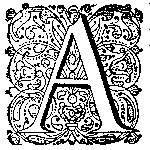Instruments of Community
Dutch Sonnets in Alba Amicorum, 1560-1660
DOI:
https://doi.org/10.51750/emlc12172Keywords:
album amicorum, sonnet, Abraham Ortelius, Emanuel van Meteren, Jan van Hout, Netherlandish Renaissance literatureAbstract
This article analyses the emergence and development of Dutch sonnets through Netherlandish alba amicorum from the period 1560 to 1660. It discusses the advent of the sonnet in the Renaissance literature of the Low Countries in the 1560s, showing how artists, scholars, and poets with connections to the Dutch refugee community in London became early adapters of this genre through their alba amicorum. We argue that this group used the sonnet as a form of exile literature, which communicated attachment to the fatherland and the righteous causes of the Dutch Revolt. Next, the essay explores the Dutch sonnets in the alba amicorum of Janus Dousa and Jan van Hout. Instrumental in establishing Leiden University in 1575 and expanding its reputation, both Dousa and van Hout encouraged the writing of sonnets in their alba as a means to advocate the use of Dutch as a literary language. Tracing the Dutch sonnet within the alba amicorum of the Low Countries, it is clear that the Dutch sonnet should be considered as the outcome of an emancipatory effort. At a moment in time where traditional non-personal inscriptions in alba amicorum were the mode, these poets used the sonnet to distinguish themselves from other contributors in the album, while at the same time conveying a clear message. First, Dutch sonnets in alba were written to claim a specific group identity connected to a Dutch migrant community. Second, these sonnets were adopted within the friendship books of the intellectual elite in Holland in order to assert a forefront position for the vernacular language equal to that of Latin, and which supported political and linguistic emancipation. After the establishment of the Dutch Republic and the emancipation of the Dutch language were completed in the first quarter of the seventeenth century, the sonnet seemed to have achieved currency in Netherlandish culture. Around the same time the number of sonnets in alba drastically dropped. The lack of exclusivity might have been the main cause of this decline.
Downloads

Published
Issue
Section
License
Copyright (c) 2022 Ad Leerintveld, Jeroen Vandommele

This work is licensed under a Creative Commons Attribution-NonCommercial 4.0 International License.





